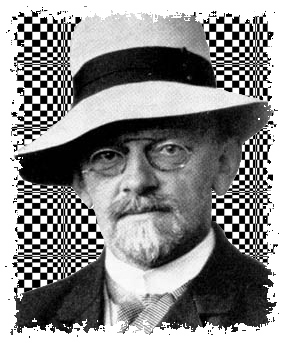23 Hilbert's Problems
home | courses | topics | theorems | starters | worksheets | timeline | KS3 | KS4 | KS5
At the second International Congress of Mathematicians which was held in Paris in 1900, Hilbert posed 23 questions to the world mathematicians to solve in the next century. Some of them were general, such as the axiomatisation of physics (see on Euclid's elements and find out what axioms, and axiomatisation mean), but some were specific and had been solved reasonably quickly.
Hilbert's problems were designed to serve as examples for the kinds of problems which lead to mathematical researches that would advance mathematical knowledge and disciplines. Often such work would lead a researcher into something that was not obvious from the start.
Quite a few books have been written on these problems, and those mathematicians who managed to solve any of them are considered to be leading mathematicians of their day.
Just to get you a taste of the problems, here are the (very) simplified first ten of the total of twenty-three. You can also have a look at the original description of problems which are given in the translation of the original paper delivered by Hilbert in 1900.
- Is there a number, which is larger than any finite number, between that of a countable set of numbers and the numbers of the continuum? [To think of a continuum, think of a number line - and ALL the numbers on it - without any gaps.] - This problem has been answered by Gödel.
- Can it be proven that the axioms of logic are consistent? Gödel also answered this problem with his incompletness theorem which states that all consistent axiomatic formulations include some undecidable propositions. See the short history of Euclidean and non-Eucliden geometry to find more.
- Give two tetrahedra that cannont be decomposed into congruent tetrahedra directly or by adjoining congruent tetrahedra. Dehn showed this could be done, but had to invent his own invariants (something that does not change under a set of transformations).
- Find other geometries (with specific directions) which are close to Euclidean geometry. This has been solved by G. Hamel.
- Generalisation of the Cauchy functional equation - was solved by John von Neumann.
- Can physics be axiomized? See the short history of Euclidean and non-Eucliden geometry to find more about axioms and axiomatic systems.
- If a is not 1 or 0, and b is irrational number, is a to the power of b transcendental number? [Transcendental number is a number that is not the root of any integer polynomial, meaning that it is not an algebraic number of any degree. Algebraic number is a number which is a root of a polynomial equation with rational coefficients.]
- Prove or disprove Riemann hypothesis. If you solve this, you get $1 000 000. There are some other 'Millennium Problems' which bear a nice price, both in terms of an award and academic prestige. See the site of Clay Mathematics Insitute to learn more.
- Construct generalisations of the reciprocity theorem of number theory. This hasn't been solved in general, although some cases have been solved by Gauss, Einstein and Kummer.
- Does there exist a universal algorithm for solving Diophantine equations? - solved by Matiyasevic and Davis.
You can see some other solved and unsolved mathematical problems here, as well as some famous conjectures and theorems.
David Hilbert - click on the picture to find more about him.
XXV International Congress of Mathematicians was held in Madrid in 2006. You can explore their web site.
See the web site of the Clay Mathematical Institute which is offering some large prices to those who can solve some old, and some new problems.
artefacts | numerals | concepts | people | places | pythagoreans | egyptians | babylonians
_____________________________________________________________________________________________________________________
Acknowledgements | Copyright | Contact | Mission Statement | Tell a friend about this site
